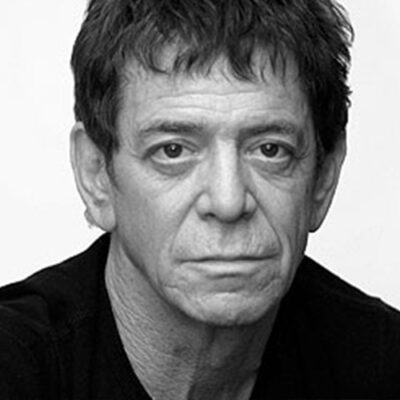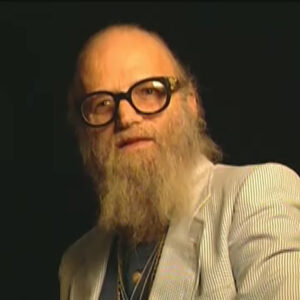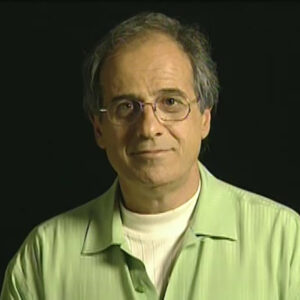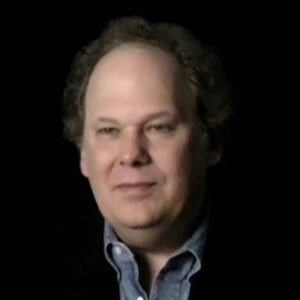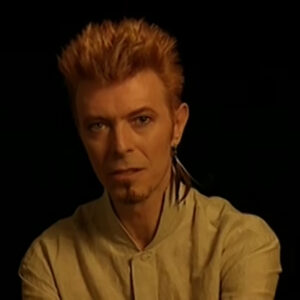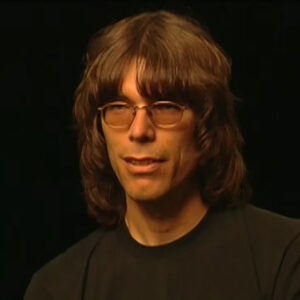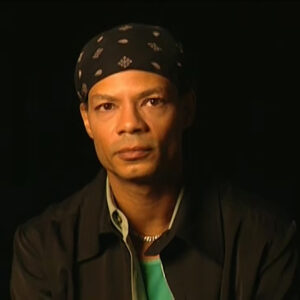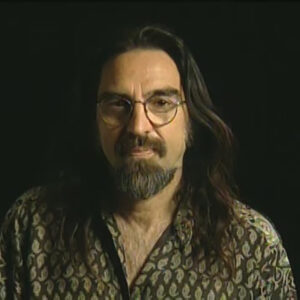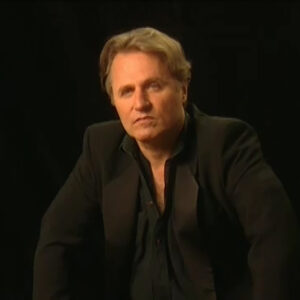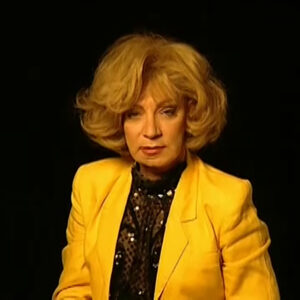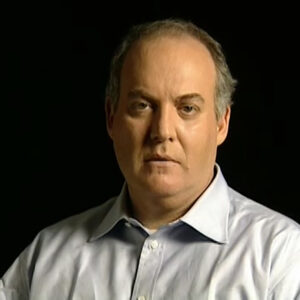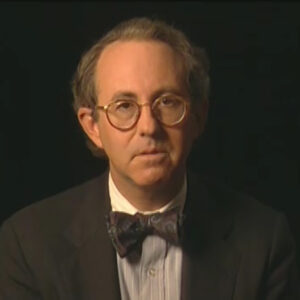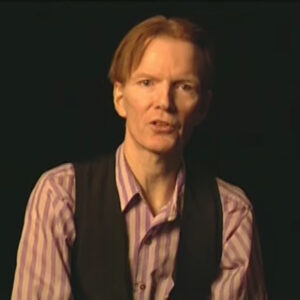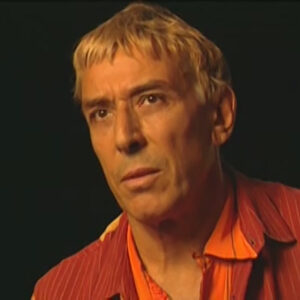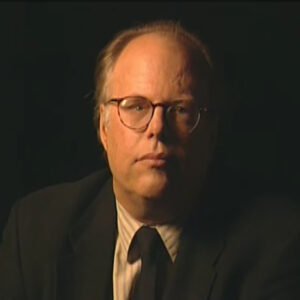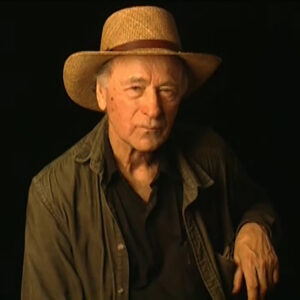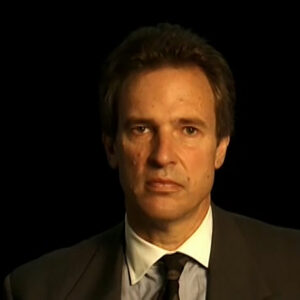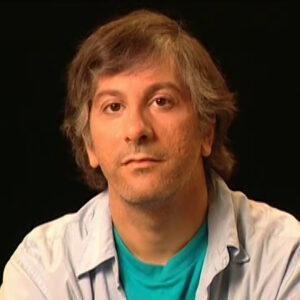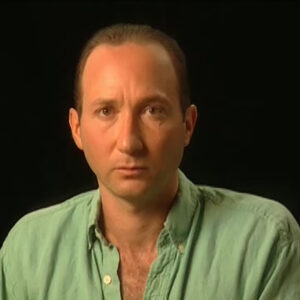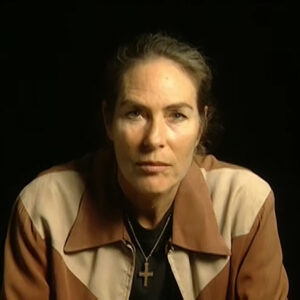Speaker There’s probably in the middle of Eurhythmics of Hayday. When I first read Waran when because of the nature of our career at the time, I don’t really remember. I remember the first time hearing Lou Reed because I was about 14 and 15 years old, that 14, I think. And our idea of drugs then because I was in the northeast of England was the nearest we got to us. Was difficult. Tiger, Obama, you rub on your head for a headache, you know. And we knew by the smell of it that it was something potent. We weren’t quite sure it was a drug. My friend had the Velvet Underground album and we went and sat outside of this building and we rub this stuff all over our head. And we were listening to the Velvet Underground. And I just remember nearly blacking out from the heat and this intense of pain from the tiger balm, but really trying to get into it, thinking this must be it is a desperately wanted to connect with that whole American drug culture of art, music, stroke. Well, it was everything I ever dreamed of, really. But is very difficult with this sort of ringing kind of pain in my head. I let us off, manage to hear it again and again under much better circumstances.
Speaker So you got there? Yeah, yeah. Yeah. I just I just want to read your column. You don’t really notice it.
Speaker Get me some tiger by the talk about how this song’s represented, what you were looking for, sort of New York or whatever.
Speaker Well, when I was about 14, 15, my brother was a strong influence because he’s four years older. We had a cousin who’d moved to Memphis. So we had a very bizarre record collection because my cousin sent us some blues records from Memphis and we had the Robert Johnson King of the Delta Blues Singers, Mississippi, John Hurt. We had Bob Dylan freewheeling album and we had to Velvet Underground albums. And then we had like a Stax collection, you know. But when I look back and it was probably the best possible collection of records you could have at that period of time to set you on the path of of being interested in real music. And, you know, as the years progressed and I followed Lou Reed’s career along with, like, face of the people like David Bowie or whatever. I started to become like a connoisseur. Like most people do when you, you know, really enjoy a good whiskey in over 30 years, you enjoy it even more. And right till the present day, actually, you know, when I’m actually with Lou and he’s just playing me some new thing he’s done. I’m still I was startled with his enthusiasm and the fact that he’s still trying to refine like guitars and and the lyrics are so sharp and cutting and and he’s not really lost any of that age, whereas most rock stars, you know, they end up sort of moving in the country and start trout fishing and becoming a game keeper or something. And they end up like drunk in the pub with the farmers. And lose, you know, right. Bang in the centre of New York. Still looking for that, you know, way of expressing exactly what he means to say without losing any integrity and stripping it back in a similar way. I think Dylan is the same, but complete different style of going about things and music. But he still likes to strip everything down. Just recently I played with Dylan in Tokyo and had all the band with tiny little lamps on the stage and very empty and really edgy sound, constantly changing and twisting the way saying it in a sense. When I went round Lou’s apartment last year, I think the year before he had this new amp and he was saying, listen to the tone of this and exactly the same enthusiasm.
Speaker Talk about the lyricism, the lyrics, the lyric writer.
Speaker Well, you know, from the very early days of me picking up a guitar on guitar and learning how to play, I was never interested in singing or learning songs with banal lyrics. So probably because my brother’s influence on these albums that we got and if you get the best straight away. It’s very difficult to to go backwards down the scale. So lose lyrics immediately, you know, opened up a whole idea that you can actually write a stream of consciousness. So you needn’t stick to a particular verse, chorus or whatever it is, you know. And the more of, I don’t know, well read or well versed, I became in some way. And the more I appreciate how you can use those three chords. And on top of that, write a whole story that drags you in. With bizarre characters that you actually start the you know, the more you hear them, the more you sort of start the picture, the characters he’s talking about and the way he can just like, you know, in two sentences, make a shot at the whole of the way society exists and just flip back again into the story and make little snide comments all along the way. It’s like a conversation. Well, it’s like having a conversation with them, actually. But it’s so well crafted, you know, that you never really tire of it. And again, the only when Leonard Cohen, Bob Dylan, Lou Reed all have a similar way, you know, a similar knack of being able to do this.
Speaker Do you find it strange?
Speaker I’ve always played I’ve never recorded with Live apart from messing about. And I’ve always, you know, whenever I’ve played with them, it’s been at a bizarre circumstance. Like I had this song on my last album called Jealousy. And I did the last time with Bootsy Collins. And Lou loved the song so much. It was on his answerphone for ages. So when we were actually playing Let Him and asked if he wanted to play it with me. So I practiced the acoustic guitar parts. I went on Letterman singing Jealousy with Bootsy Collins on bass, Lou Reed on rhythm guitar. Then we were in London and we decided to do another show together called A White Room, which is a great one. I think you actually get a copy of it. And we did about three or four songs together and he sang it. This time he sang some of jealousy and I sang some of Daddy Boulevard, I think, and we played again. It’s a great life sound, actually, and it’s really good showing possibly a clip of it. It’s called The White Room. And then it. But the most bizarre time was when we were really quite drunk. One time in New York, about one o’clock in the morning, we decide it would be great to go and play in a club. And I need a lady who works for me call Excite Exciton. That’s a good idea. So she rang up a club and said Dave and Lou were coming down the club. Good luck. So what we forgot to say is we didn’t have any instruments. So by the time we got there, there was a whole club full of people waiting. I think Bootsy Collins was there and quite a few of us. And we’re in this basement. I’ve got a great piece of footage because I film everything constantly, Lou. So shouting at Eileen, ISIS luck. You know, now we’re down here in this club and we haven’t even got a bloody cable. And he goes, and not only has Dave managed to manifest total chaos, he goes and now he’s filming it. And he turns right to me like that. And so I have got some great footage of Lou and Lou and Larry and lots of great stills actually have other musicians. I think a lot of musicians are completely terrified of Lou Reed and one, because it’s like the amount of work and how potent every piece of work is. It’s SAM counterstrikes of massive insecurities and to any other songwriter, you know, and his presence as well, because Lou can appear quite hostile when, in fact, he’s nervous. Having worked with lots of different musicians, being a producer. And actually he was quite similar in a way that that sort of nervousness comes as a kind of hostility. But once you sort of realize it’s that, I’ll get through that. I think once people are around him long enough, you know, they actually relax and go, hey, it’s Lou Reed. But I’m not intimidated. But, you know, he does like a lot of people who are very, very sort of gifted and their mind works very fast, can get very frustrated with people quickly.
Speaker Transformer hunky dory.
Speaker Well, a transformer hunky dory. I must have bought both of them about 30 times each. Because since I lose it, I move around, I have to get it again. It’s hard enough for an artist because when people pick out an album, say, Eurhythmics, and they say, yes, sweet dreams, you know. And then you made another eight albums after that that had a Here comes the Rain and this. But there’s a certain period in your life when everything it’s like an epiphany. You know, when the certain album comes out, you’re 18. You’ve just, you know, took drugs for the first time and you’ve just slept with this girl and actually managed to sort of last longer than 30 seconds. It all happens on the same day. And it’s very difficult to get that album out of your, you know, existence. It slips into the gaps somewhere between your thoughts and it pops up every now and then. And Transformer is definitely one of those. I learned how to play every song in about a week from it, and I’ve probably played one of the songs of Transformer and sang it to myself or on the guitar probably every other day since. Which is pretty amazing, really. I mean, you think that you could tire or something after a few months, but I’ll either play fishes, so it’s a perfect day. Oh, Salai of Love for Annie and I recorded Satellite of Love years ago before we even had sweet dreams and sent it to Lou Reed. And he sent us a note back saying it was his favorite recording.
Speaker What is it about? Perfect day. This is a president song as a musician.
Speaker Why is that? Well, because, you know, it’s good. Yeah.
Speaker Yeah. Perfect day is such a powerful song. For most songwriters it is because very simply, it encapsulates that thing between joy and feeling joy and suicidal, you know, which, you know, most artists jump between that every 10 minutes. And most people, they go through waves of two or three years of feeling really up about their life. And then a Dampierre, where’s artist? It will be like every half hour, although suddenly thing after the most amazing thing that anybody’s ever heard and then half an hour later got, it’s absolutely terrible and want to stop burning it, you know. And then he goes, you know, I thought I was someone else. Someone good. Just a simple line like that. The other day I was writing this song and it was like a very happy up beats of some almost like that Eric Idle song always look on the bright side of life. So I start off singing it and it was like, everybody’s having fun again. We’ve forgotten who we are again. And then I had to add, but it makes me laugh to think I was suicidal, you know, because you can’t really express the whole of, you know, humanity of society or the way you feel in a song and make it all up because it just doesn’t exist in life, you know, doesn’t exist in nature. It doesn’t exist anywhere. And you can’t express it being all completely down either. You know, if you’re singing like a song like heroin about, you know, the rush of her, you have to admit the excitement, but you have to also show the bleak black side. And so Lee Lou straddles this perfectly all the time, but a song like Perfect Day sort of hits it on the head and a very crystal clear and very empty atmospheric way.
Speaker And that’s incredibly difficult to do other things. Oh, yeah. You talk about the guitar playing. Mm hmm.
Speaker You know, I’m sorry to keep making comparisons about Lou Reed and Bob Dylan, but there are lots of comparisons which they’re both obsessed with. Guitar playing. Yeah. To a lot of supposed guitar players, they wouldn’t be able to understand that because a lot of people are completely obsessed with playing fast technicalities, whereas they’re looking for something else. They’re looking for the actual guitar tone that strikes right through the Cole of you. So in a way, like Neil Young, when he plays, there’s one note solos. So they’re not really interested in, you know, whether they played thirty seven notes in in a minute. In 30 seconds. They’re interested in getting that tone. The actual sound that when you’re listening to it and you’re driving along in your car, it actually makes you get goose bumps or it freezes you to the spot. And I really respect that much more than anything else. And they both constantly fiddling around with a guitar sounds. And it’s a never ending journey because it’s almost like in search of the perfect haiku. You know, it’s like if you can express something in a very pure, simple way. And strike a chord throughout, you know, the nation all round the world. That is an amazing thing to achieve. And it also is very fulfilling because, you know, actually, it’s coming from ya. From a pure place. And so when he talked about his guitar playing, it’s hard to talk about without bringing that into it, because, I mean, both of them as well are heavily influenced by the old blues players. I made a film called Deep Blues, which I think Bob Dylan is loves, and I think Lou Reed loves it, too. And it’s him. I went right to Mississippi around Greenville and found some of these players in the 60s, 70s electical Jessie Mae Hemphill, who Dylan was really surprised. He actually had a record of hers. I think she only printed about 500 at a time. And these players like this, a song called Jumper on the Line, this blues song that I learned from a guy on his front porch and one called actually this one chord. But the rhythm with one hand and the way he’s playing the guitar is just so brilliant and it’s so impossible to duplicate. And that’s the kind of thing that Lou gets obsessed with. And I can see why, because it’s not coming from any ego things that come from anything apart from his lot. It’s almost like an Indian raga.
Speaker You talk about what it was like in the 80s, what he looked like.
Speaker What’s it look like? Well, I, I it’s very hard to see for me to see Lou Reed like and remember what clothes he was wearing because his personality and the atmosphere around him completely wipes out anything else. I only sometimes thought he was wearing the wrong pair of glasses. But that’s purely because I’m a fashion of pop victims. I hate guitars that don’t have the ends on, you know. It’s like sacrilege for me to be playing rock and roll with the guitar. The embassy was really like the Steinberg guitars.
Speaker But, you know, it’s very difficult to to ever imagine Lou being anything but completely intense and not so wipes the floor with any kind of comment on what he was wearing.

